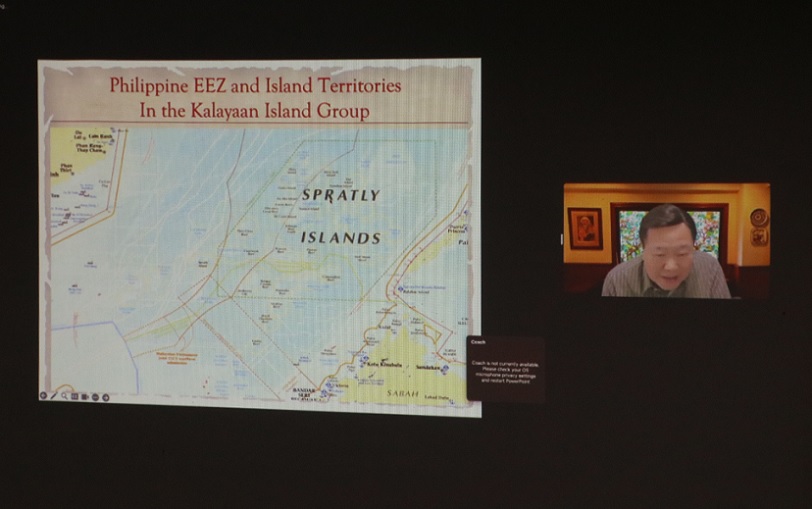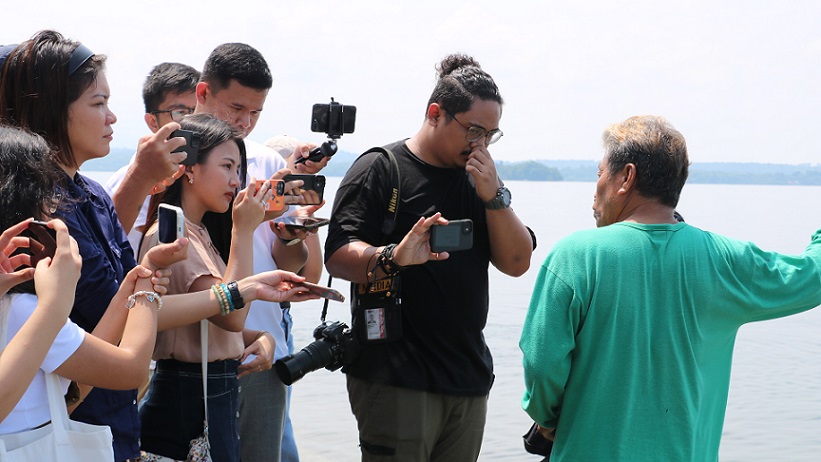As the South Chinese Sea dispute continues to heat up, former associate justice Antonio Carpio has recommended that the Philippines submit the conflicting claims in the Spratly Islands to voluntary arbitration in the International Court of Justice (ICJ).
“This will settle by peaceful means, in accordance with the UN Charter, the territorial dispute in the Spratlys… We have the strongest claim to the Spratlys. Let’s challenge everybody to submit this to arbitration,” Carpio said during a seminar-workshop on enhancing media coverage of the South China Sea last Sept. 15.

This can only happen, however, if all the other countries involved in the dispute — China, Vietnam, Malaysia, and Brunei— will all agree to bring the issue to the ICJ. Brunei usually follows the lead of China. The Spratly Islands is a part of the South China Sea, which is almost wholly-claimed by Beijing.
The ICJ is the principal judicial organ of the United Nations (UN). Based in The Hague, Netherlands, it settles disputes between states in accordance with international law and gives advisory opinions on international legal issues.
Unlike the Permanent Court of Arbitration (PCA), no state can be sued before the ICJ unless it consents to such an action.
Without these other claimants, Carpio said the Philippines would have to “play the long game” of waiting for the sea level around the Spratlys to rise and earning support from other countries.
“The Philippines can just wait for sea level rise to submerge most if not all of the islands in the Spratlys. Then the submerged areas will form part of the Philippine EEZ (exclusive economic zone) if within 200 NM (nautical miles) from our archipelagic baselines in Palawan,” Carpio explained.
In the meantime, the former justice emphasized the importance of educating not only Filipinos but also the world on what is happening in these disputed waters and what is at stake there.
“Education is an important part because if the entire world is against China, China cannot do anything. China can stay there but they will always be considered an illegal squatter,” he said.
Carpio also expressed support for the planned release of an updated Philippine standard map by the National Security Council. The map will highlight the country’s maritime entitlements based on the 2016 arbitral ruling and the UN Convention on the Law of the Sea.
“We must have our own because it’s not good to be lecturing, to be telling everybody about our maritime zones and we don’t have a map. We’re using maps of other countries,” he said, noting that the Vietnamese map he usually uses in his lectures do not follow the normal base lines.
He said this proposed map of the country should be included in the national education curriculum, along with other historical Philippine maps that essentially prove the country’s ownership of Scarborough Shoal and the Spratly Islands.
“This is important because this is how we will rebut China’s claim… All these documents are there for us and we must teach our people. Unfortunately, the DepEd (Department of Education) has not taken interest in this,” Carpio said.
In April 2023, DepEd publicized the draft for a revised K-10 curriculum which included a proposal to teach lessons on the West Philippine Sea (WPS) to Grade 10 students. As of press time, only the revised curriculum for Kindergarten up to Grade 7 will be piloted in seven regions for school year 2023-2024.
On Aug. 28, China released its new standard map that shows its extended claim in the South China Sea. It includes a 10-dash line that extends into the EEZs of neighboring countries. The Philippines, along with India and Malaysia, has since filed a diplomatic protest about this.

The government is also studying the possibility of filing another complaint against China before the PCA over the destruction of corals surrounding Rozul Reef in the West Philippine Sea.
On Sept. 16, the Armed Forces of the Philippines raised the alarm over the massive poaching of corals in the area.
This was later confirmed by the Philippine Coast Guard (PCG) that said their underwater survey within the area showed Rozul Reef’s marine ecosystem appearing “lifeless, with minimal to no signs of life.”
“The continued swarming for an indiscriminate illegal and destructive fishing activities of the Chinese Maritime Militia in Rozul Reef and Escoda Shoal may have directly caused the degradation and destruction of the marine environment in the WPS features,” Commodore Jay Tarriela, PCG spokesperson for the West Philippine Sea, said in a statement.
He noted that approximately 33 and 15 Chinese maritime militia vessels were present in these areas from Aug. 9 to Sept. 11.
Carpio was among the speakers who discussed the controversial South China dispute during a multi-media seminar-workshop in Candelaria, Zambales last September 15 to 17. Hosted by VERA Files and supported by the Canadian Embassy’s Canada Fund for Local Initiatives, the workshop aimed to enhance journalists’ capability to raise public awareness of the situation in the South China Sea.


